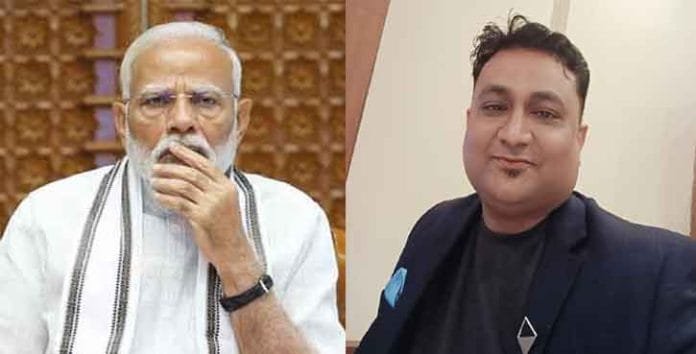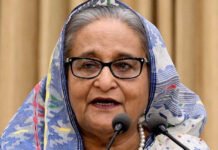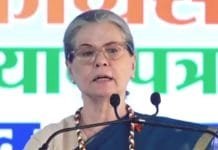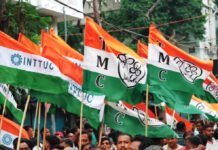Brief Summary : The 2024 assembly elections in Maharashtra, Haryana, Jharkhand, and Jammu & Kashmir will be crucial in determining the BJP’s future. This comprehensive analysis by political expert Neeraj Gupta explores the challenges, strategies, and implications for the BJP in these pivotal polls.
Expansion
The political landscape of India is on the brink of a significant transformation, as the 2024 assembly elections in Maharashtra, Haryana, Jharkhand, and Jammu & Kashmir approach. These elections are more than just a routine democratic exercise; they are a litmus test for the Bharatiya Janata Party (BJP), which is keen to consolidate its power in these key states ahead of the 2024 General Elections. With each state presenting its own set of challenges and opportunities, the outcomes of these elections could very well decide the future trajectory of the BJP. Political expert Neeraj Gupta offers an in-depth analysis of the strategies and hurdles that lie ahead for the ruling party.
## The High Stakes in Haryana
Haryana: The Stronghold at Risk?
Haryana has been a BJP stronghold for nearly a decade. In 2014, the BJP, under the leadership of Manohar Lal Khattar, secured a decisive victory and repeated the feat in 2019, albeit with the help of the Jannayak Janta Party (JJP). However, the political dynamics in Haryana have shifted significantly since then. The alliance with JJP has fractured, and Khattar’s transfer to a central position has left a leadership vacuum. Neeraj Gupta points out that this lack of a clear leader could be a major drawback for the BJP in the upcoming elections.
Farmer Unrest and the Agnipath Scheme: A Double-Edged Sword
One cannot discuss Haryana without addressing the farmers, a significant voting bloc in the state. The fallout from the controversial farm laws still lingers, with many farmers feeling betrayed by the central government. Additionally, the Agnipath scheme, a new military recruitment policy, has stirred discontent among the youth, another critical demographic in Haryana. Rahul Gandhi and other opposition leaders have capitalized on these issues, intensifying their criticism of the BJP. As Gupta notes, how the BJP navigates these sensitive topics will be crucial in determining its success or failure in Haryana.
The 2019 Lok Sabha Results: A Bellwether?
The BJP’s performance in the 2019 Lok Sabha elections in Haryana was stellar, winning all ten seats. But the 2024 elections tell a different story. The party’s vote share has dropped from 58% in 2019 to 46.06%, while the Congress has gained significant ground. With Congress emerging as a formidable opponent, the BJP faces an uphill battle to retain its dominance in Haryana.
## Maharashtra: Navigating the Coalition Conundrum
A Fragile Alliance
Maharashtra, India’s second most populous state, presents a unique challenge for the BJP. The state is currently governed by a coalition that includes the BJP, Eknath Shinde’s faction of the Shiv Sena, and Ajit Pawar’s faction of the Nationalist Congress Party (NCP). However, this alliance is far from stable. Neeraj Gupta highlights that the BJP’s performance in the recent Lok Sabha elections, where it won only nine out of 28 contested seats, signals a potential weakening of its influence in Maharashtra.
Maratha Reservation: A Hot-Button Issue
The issue of Maratha reservation is a significant political flashpoint in Maharashtra. The BJP’s inability to address the demands of the Maratha community has already cost it dearly in the Lok Sabha elections, particularly in the Marathwada region. Gupta argues that the BJP must find a way to resolve this issue or risk alienating a crucial voter base.
Internal Dissent: To Go Solo or Not?
Within the BJP, there is a growing faction that believes the party should contest the elections independently, without relying on its coalition partners. The reasoning is simple: the coalition’s lackluster performance in the Lok Sabha elections could drag the BJP down in the assembly polls as well. However, not everyone within the party is on board with this idea, given that the central government itself is a coalition. Gupta notes that the BJP is reportedly conducting a secret survey to gauge the feasibility of going solo in Maharashtra—a move that could redefine its political strategy in the state.
## Jharkhand: The Tribal Equation
A Battle for Tribal Votes
Jharkhand presents a different set of challenges for the BJP. The state has a significant tribal population, and the BJP has traditionally struggled to win their support. In the 2019 Lok Sabha elections, the BJP failed to win any of the five seats reserved for Scheduled Tribes, a worrying trend that could continue into the 2024 assembly elections. Gupta emphasizes that the BJP needs to find a charismatic tribal leader who can counter the influence of Hemant Soren, the current Chief Minister and a popular figure among the tribal communities.
Internal Divisions and Leadership Crisis
The BJP in Jharkhand is also grappling with internal divisions. The lack of a clear leadership figure has led to infighting and a lack of direction. Gupta suggests that without a unifying leader, the BJP may struggle to mount a serious challenge to the ruling Jharkhand Mukti Morcha (JMM) in the upcoming elections.
The Role of Development Projects
On the brighter side, the BJP can leverage its development projects in the state to win over voters. Infrastructure development, job creation, and social welfare schemes are areas where the BJP has made strides, and these could be crucial in swaying the electorate. However, Gupta warns that these efforts might not be enough to overcome the deep-seated loyalty many voters have towards Soren and the JMM.
## Jammu & Kashmir: The Test of Credibility
The First Post-370 Election
The assembly elections in Jammu & Kashmir are historic for several reasons. They are the first to be held since the abrogation of Article 370, which granted special status to the region. The BJP has positioned itself as the architect of this bold move, but the upcoming elections will reveal whether this strategy has paid off. Neeraj Gupta argues that these elections are as much a referendum on the BJP’s handling of Jammu & Kashmir as they are about local governance.
Security Concerns and the Terrorist Threat
The recent surge in terrorist attacks in Jammu & Kashmir poses a significant challenge to the BJP’s narrative that the region has stabilized post-Article 370. Gupta notes that the BJP must balance its strongman image with a message of peace and development to reassure voters in the volatile region.
Delimitation and Its Impact
The delimitation exercise, which increased the number of assembly seats in the Jammu region from 37 to 43 and in Kashmir from 46 to 47, is another factor that could influence the election outcome. The BJP is reportedly planning to contest most, if not all, of the 43 seats in the Jammu region. Gupta points out that while this strategy could bolster the BJP’s chances in Jammu, it risks further alienating voters in the Kashmir Valley.
## Neeraj Gupta’s Strategic Insights
The Importance of Leadership
Across all four states, one recurring theme in Neeraj Gupta‘s analysis is the importance of strong, charismatic leadership. In Haryana and Jharkhand, the BJP’s lack of a clear leader could be its Achilles’ heel. Conversely, in Maharashtra and Jammu & Kashmir, the presence of strong regional allies and leaders could either be a boon or a bane, depending on how the BJP manages these relationships.
The Role of National Issues in State Elections
Gupta also highlights the impact of national issues on state elections. Whether it’s the fallout from the farm laws in Haryana, the Maratha reservation issue in Maharashtra, or the abrogation of Article 370 in Jammu & Kashmir, national policies and their local implications will play a crucial role in these elections. The BJP’s ability to localize these issues while maintaining its broader national narrative will be key to its success.
The Coalition Dilemma
Finally, the question of whether to go it alone or stick with coalition partners looms large over the BJP’s strategy in Maharashtra and Jammu & Kashmir. Gupta argues that while coalitions can provide stability, they can also dilute the party’s message and confuse voters. The BJP will need to weigh the benefits of coalition politics against the risks of going solo as it formulates its election strategies.

















Great analysis